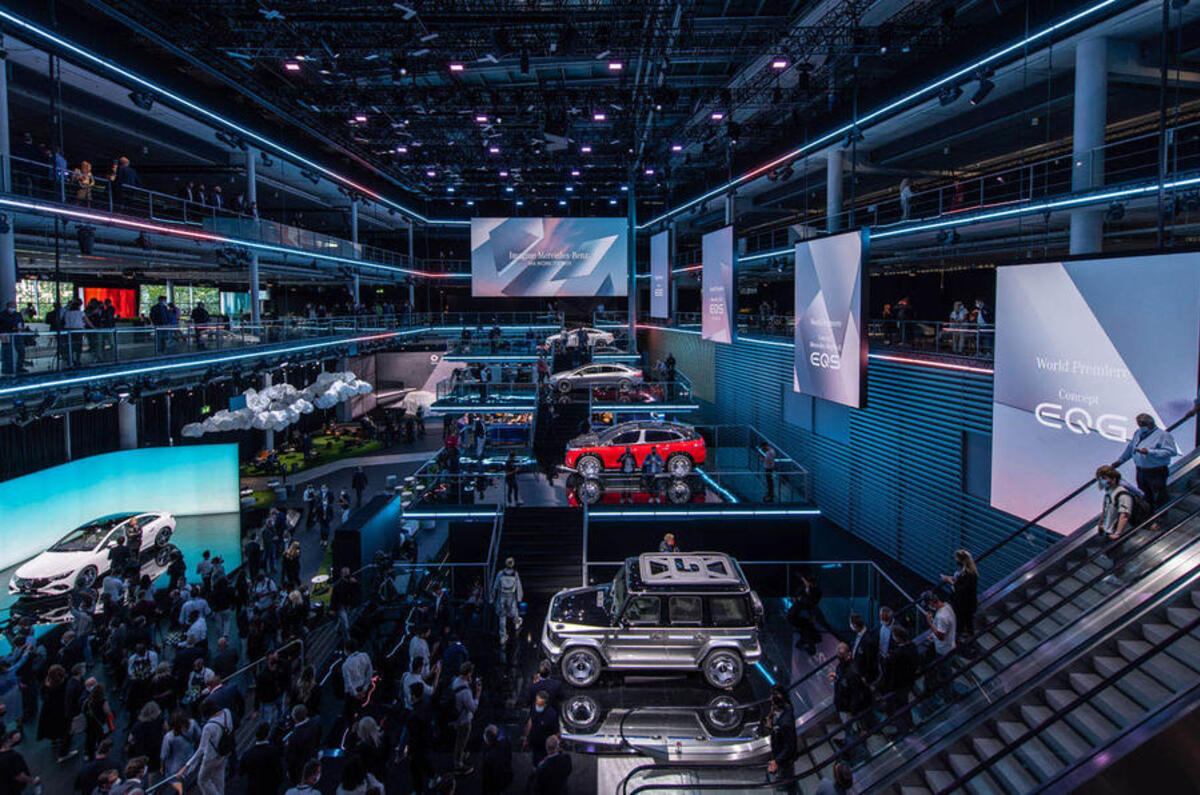Maybe, just maybe, there is life for the motor show in Europe after all - and it was under our noses all along.
The Brussels motor show celebrated its 100th anniversary this year, and brought with it an unexpected glut of new launches. Perhaps glut is pushing it, but there were interesting cars we'd never seen before, including the return of rotary in the Mazda MX-30, and first public showings of the Vauxhall Astra Electric, Citroen Oli, BMW M3 3.0 CSL, and the Mini Aceman.
The attendance was further swollen by the reveal of the 2023 Car of the Year, voted for by 57 jurors from 22 countries, your correspondent among them. The Jeep Avenger was a worthy winner, and each manufacturer had senior executives on hand ready to accept the trophy. Car of the Year brings an audience to the show, for sure.
But Brussels is not a typical motor show. It is a 'selling' show, where cars are sold, and in vast numbers. Mazda Europe CEO Martijn ten Brink, a former head of Mazda Belgium, says that it's as many as 60% of contracts signed on new car orders in a year occur at the motor show.
The show has about 700,000 attendees each year, and dealers invite their prospective customers along to come do their deal. Dealers will get tickets to give to customers, and the show over-indexes on hospitality as dealers look to woo prospective buyers.
Indeed, as we left on the press day, scores of dealers were queuing to get in for their own sneak preview of the show ahead of the first public day, a late afternoon preview that leads into a gala dinner.
It is a well-attended show, with the local distributors in Belgium hosting the stands. There was a real Geneva feel to it, with stands remaining largely at eye-level and not being the vast, overblown, mega-bucks structures that came to dominate the likes of the Frankfurt motor show. All major car makers are present with their latest models and concept cars on display.
The absence of mega-structures and the air of neutrality is ultimately what builds its appeal. "Larger manufacturers had a 'Frankfurt syndrome' where they spend €50 million for two weeks," says ten Brink on what's bringing the demise of the traditional motor show. "It's the haves and the have nots, where you get stuck in a corner upstairs" if manufacturers couldn't compete with the larger stands. "The small can't keep up with the big, and the big don't want to go small."
Still, ten Brink himself doesn't see Brussels as a replacement for Geneva. Mazda is here as it is well-timed for the launch of a new car, and it knows it has a ready-made Mazda show stand on which to display it. "We can take over the stand for half a day, inject a bit more budget, and we get more exposure," says ten Brink on the win-win situation for Mazda in Europe and its Belgian entity.
"Once every couple of years, not every brand every year," he adds, on what Brussels could become and whether more head offices might join Mazda in investing in the show. Which is probably fair: Brussels will exist regardless due to the uniqueness of the Belgian market, with car makers able to tap into stands that are ready to go, and in a city with good infrastructure and seasonally at a very good time of the year.








Join the debate
Add your comment
I am able to create $88/h to complete few jobs on home computer. c9 I’ve never thought that it’s even achievable but my closest mate earning $25k only within five weeks simply working this leading project & she had convinced me to join…Discover extra details by going following link........ EarnCash7.com